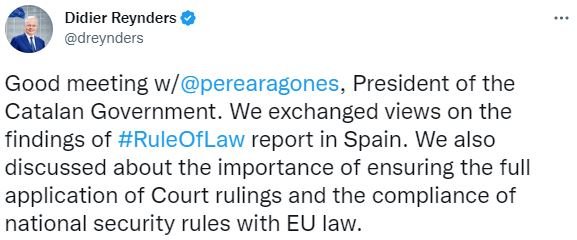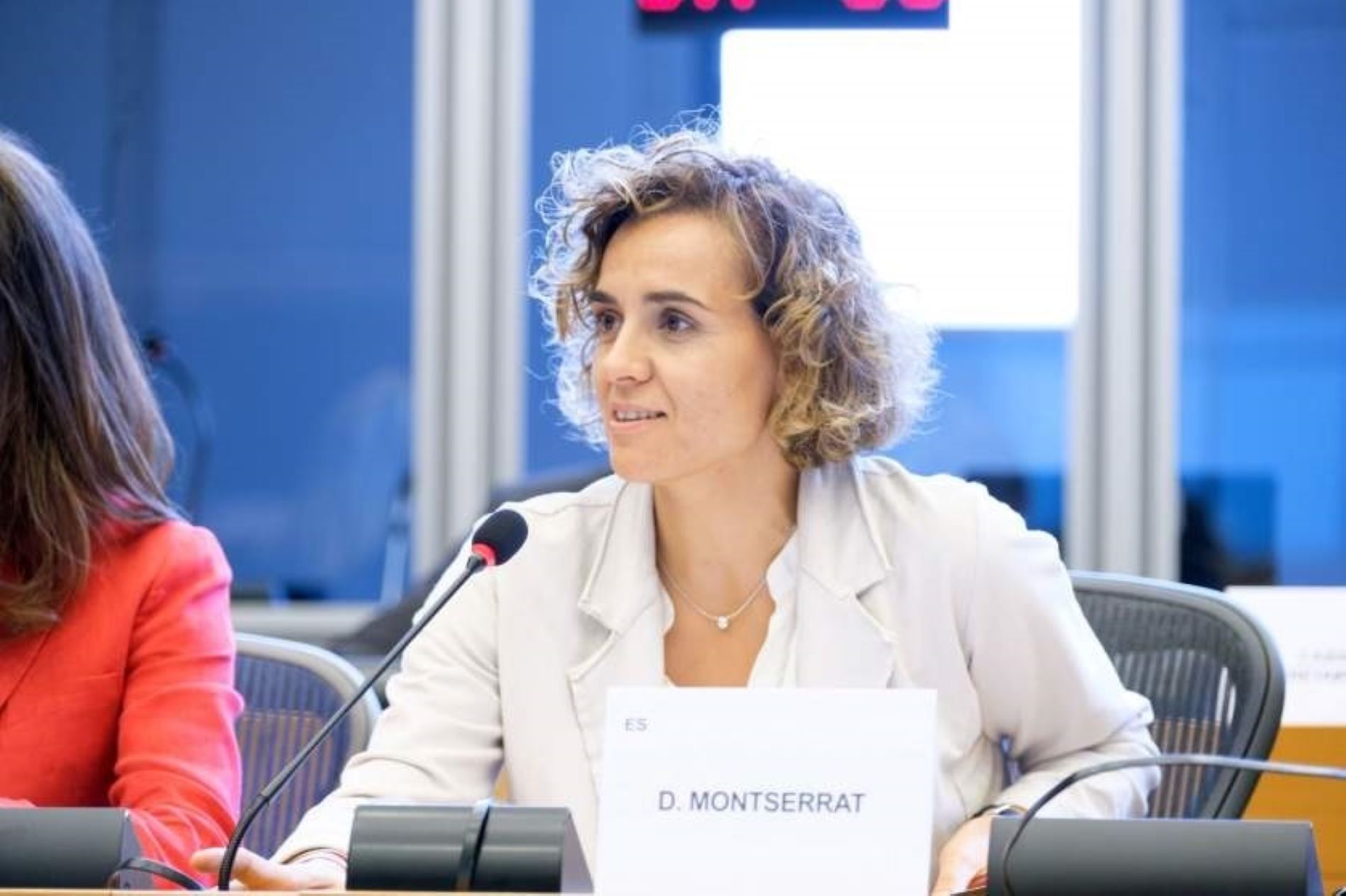The European Parliament is to send a mission to Catalonia to assess the situation of the Spanish language in its schools, at the request of the Asamblea por una Escuela Bilingüe (AEB), a language pressure group. The Petitions Committee of the European Parliament, chaired by Dolors Montserrat of the Spanish People's Party (PP), has approved the petition after the coordinators of the European political groups agreed this Tuesday to go ahead with the visit to Catalonia. The coordinators themselves will detail the objective of the mission, its agenda, the delegation who will make the trip and other details in its upcoming meetings. What is known is that the visit will take place in the second semester of 2023 because it cannot be carried out during the first half of the year. The reason? Next year's Spanish municipal elections.
This petition was presented in 2017 by the president of the AEB, Ana Losada, and was focused on "the impact of total immersion in the Catalan language in schools for families moving into the region". At that time, the association demanded "that the children of Catalonia receive their education in the two official languages, Spanish and Catalan, equally", a demand that was made in an on-going linguistic context in which the minority language in Catalonia - Catalan - is facing a decline in its use, and knowledge of the language among young people is also falling. However, the thrust of the petition does not mention this context, but rather demands "that public establishments or those financed with public funds teach in both languages" - and, therefore, that they abandon the mandatory full immersion in Catalan which has applied since the 1980s.
"Freedom of movement" argument against Catalan immersion
The argument used by the AEB concentrates on an alleged breach of the EU doctrine of freedom of movement throughout the Union by EU citizens. Specifically, it states that the Catalan language immersion policy "discriminates against children whose parents have had to move temporarily to Catalonia for their work". "Having entered the Catalan education system at a relatively late stage, they are unable to follow teaching in stem subjects, which is only provided in Catalan, and are accordingly treated as children with special educational needs, alongside those with physical and mental handicaps, behavioural problems or socially and economically disadvantaged backgrounds," it adds. The anti-immersion group insists on the fact that "this discrimination constitutes a restriction of the freedom to move and reside freely in a member state of the European Union".
Finally, the so-called "Bilingual School" group assert that "80% of the curriculum is taught in Catalan and only 20% in Spanish, considering it a blatant form of discrimination, given that both are official languages". "This is an effective restriction on the freedom of movement of families and access to employment," the text concludes. The petition was presented before a court imposed a quota of 25% teaching time in Spanish in schools, a measure without effective support on the streets: the last demonstration in Barcelona to support a more-Spanish policy failed, with only around 2,800 people turning up. In fact, the court itself has now recognized that Catalonia's new law on school language plans means that, in general, the 25% Spanish ruling no longer applies.
Five years after the petition was presented, the European committee chaired by Montserrat has now decided to send a mission to Catalonia to assess the state of the Spanish language in schools. The decision takes place five days after the meeting held by the European Commissioner for justice, Didier Reynders, with the Catalan president, Pere Aragonès. When the meeting ended, Reynders published a cryptic tweet in which he claimed to have discussed with Aragonès "the importance of ensuring the full application of court rulings" - phrase that some Spanish media interpreted as referring to the 25% Spanish quota in schools. However, it is known that the European commissioner did express his concern about Spain's failure to clarify or investigate its espionage against the Catalan independence movement.

In this regard, it should be remembered that the European Parliament asked the European police to use new powers to ensure that espionage with Pegasus is investigated in Spain. The European chamber also denounced in a letter that illegal phone hacking violates fundamental democratic values. But, despite requests, the European Parliament has not approved any mission to investigate either the so-called Catalangate espionage or the other aspects of the spy scandal. On the other hand, the chamber has decided to agree on a visit to Catalonia to see if the world's third largest language is under threat in classrooms.

